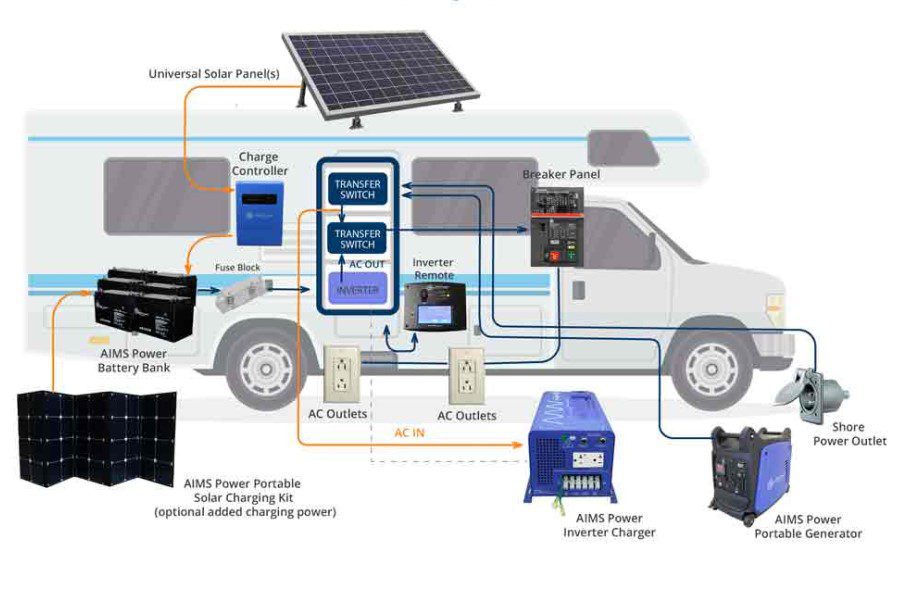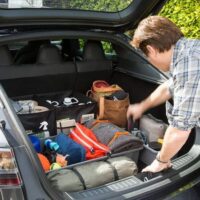You might get confused as to why you need an RV inverter for your RV batteries. Well, you might think that whenever you have the battery, everything is just plug-and-play. But it does not work that way. It might work initially, but it will affect your appliances in your RV in the long run.
AN RV inverter works as the regulator of the electric current coming from the batteries to the appliances. This is in effect that it will work just like a traditional shore alignment in a conventional home. And that is the primary purpose of a Recreational Vehicle. It should be your home away from home. And it will not feel like one if it does not work like one.
If you want to see other things about RV living, you can visit rvcamping.com. Out here, we promote a happy community for RVs by providing helpful articles like the one you are reading right now. So for this page, we will talk about the importance of an RV inverter to your batteries.
RV Inverter: An Overview
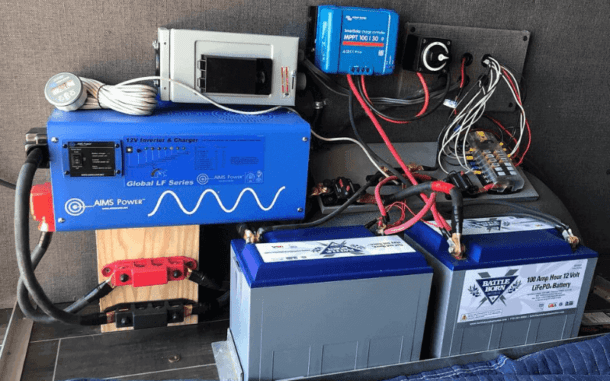
We keep on saying RV inverters but do we understand what it is for. To give you a quick overview about it, it regulates the circulation of electricity inside the RV coming from the batteries. Have you ever heard of AC and DC? Well, these are the type of currents: the alternating current and the direct current.
From the words themselves, the direct current flows straightforwardly. So imagine it like this, from the power source to the appliances, and it is at 12V. Now the alternating current works in a different direction. It is like a booster for direct electricity, and it provides 120V to the RV. It works like a human heart that pumps blood throughout the entire body.
You need to check out the specs of the appliances in your RV to know in which current type you are going to set it up. Because if you fail to do so, it might experience a short circuit. In addition, the direct current(DC) is the one in charge of charging your batteries. The alternating current (AC) works for appliances that need higher voltage, like refrigerators and washing machines.
Is RV Inverter a Necessity?
Yes, it is! Especially if you prefer boondocking and going off-the-grid. For instances where there are no electrical hookups, you will not use your RV appliances with ease and comfort. There will always be a dilemma that the battery charge will not be enough. Or it will not work at all!
And being the wild feeling like a primitive one sure feels thrilling. But still, since you have been used to the comforts given by technology, having it along with can be possible with an RV inverter.
Types of Inverter
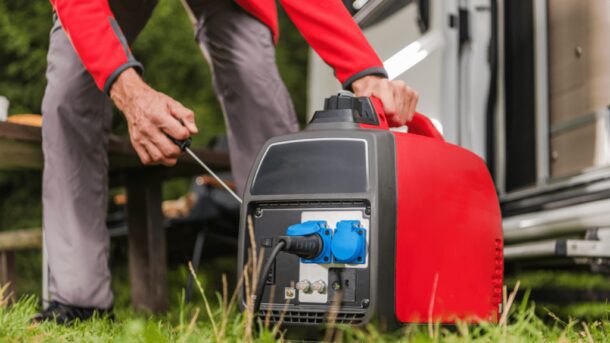
Now that you know the importance of an RV Inverter, let us talk about the types of an inverter. This is to make sure that it will be safe for the appliances in your RV.
Pure Sine Wave Inverter
This type of inverter emits waveform in a rounded motion. This is perfect for high voltage running appliances, such as refrigerators, television, coffee makers, or washing machine.
Things that will run with a pure sine wave inverter:
- Appliances with AC motors
- Medical types of equipment like CPAP machine
- Sensitive electronics
- Printers (laser type)
- Smart Televisions
- Devices that have timers (electronic or digital clock)
Modified Sine Wave Inverter
This type, on the other hand, replicates what a pure sine wave inverter does. But only in a straight line, not a wavy one. Other appliances might not work pretty well with this type of inverter. That is why we prefer to suggest you have the pure sine wave inverter instead.
Things that will run under a modified sine wave inverter:
- Appliances with no AC motors
- Simple set up appliances or those that are not sensitive
- Old tube televisions
- Water pumps
- Phone chargers
Size of your Inverter
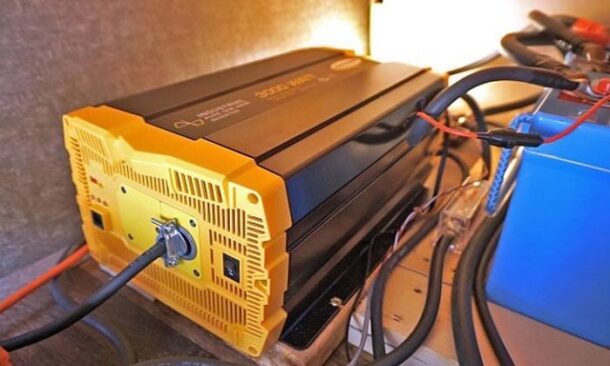
What we mean by size is the actual wattage capacity of the inverter. To calculate the wattage required in your RV, get the total wattage consumption of each appliance in your RV. For example, you have a refrigerator, a television, a microwave, and a small washing machine. You have to collate all their wattage requirements. Don’t forget about the chargers as well for your phone or other gadgets.
Then add at least 15 to 20 percent wattage for each appliance. This allowance is to cover the overhead wattage needs when they are starting. If you are not aware of the overhead wattage allowance, this is how it works. Generally, most appliances require more significant wattage consumption to start the whole motor up. Then once it is already in and stable =, the wattage consumption or requirement will now go down to what is provided.
Plus, the allowance will ensure that there is enough wattage capacity for any additional usage of appliances. For example, a friend will ask to charge her phone in your RV., Or you have an extra chore to do like washing the clothes and charging your phone and other gadgets simultaneously.
Conclusion
An RV inverter works as the aid to your RV battery. This can make sure that you will have that traditional home experience. There will o problems when you turn on your light, open your fridge, and make your coffee. Imagine if you are off the grid and have all these luxuries in the middle of the wilderness. It is like a dream comes reality for that stress break from the real world.
We hope that you have read the above-stated importance of an RV battery by heart. We aim to help you know how important it is in your RV living. And true to our goals as RV enthusiasts, we hope that this article has helped decide which inverter to choose.
Now, if you have something to share based on your experience in having an RV inverter, please pitch it to us to provide it to other RV users. We encourage you to be part of our mission to create a helpful community of RV users.

